Climate and Communal Justice: Cultivating Equity Through Urban Greening in Cape Town
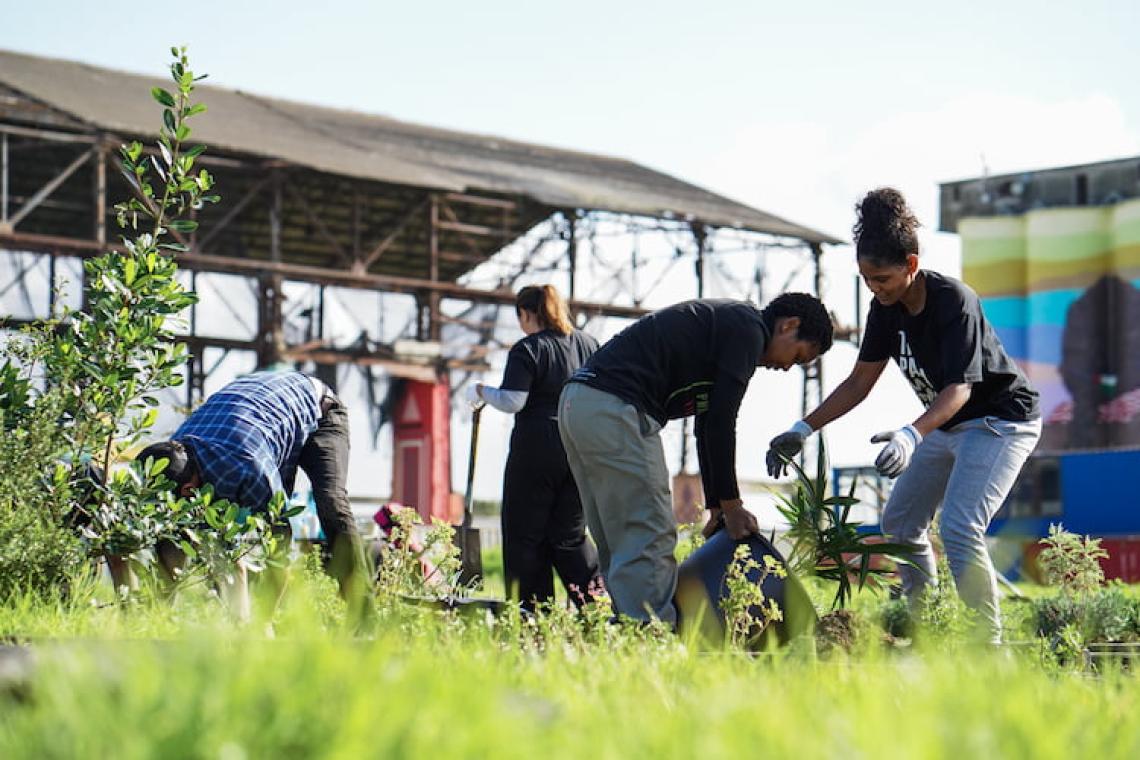
South Africa transitioned into democracy 31 years ago, propelled by Nelson Mandela's vision for a more equitable society. However, three decades after the abolishment of apartheid legislation, South Africa remains heavily segregated and burdened by inequality. Today, International Mandela Day is globally observed as an opportunity to celebrate and honour Madiba’s legacy through selfless deeds or a variety of shapes and forms of giving back. Bridging this gap between Madiba’s vision and our current reality may feel like a far reach; however, urban greening may be part of the antidote to our country’s societal ailments.
Urban Greening as the Intervention
Urban greening reaps benefits reaching far beyond environmental restoration or mere natural aesthetic enhancement. While it has proven effective in supporting climate resilience, improving air quality, enhancing biodiversity, and regulating temperature, it is also a particularly useful tool for communal upliftment and societal restitution in the South African context, widely underutilised and underacknowledged for its great potential. Urban greening encompasses the strategic planting of indigenous tree and plant species, the restoration of local biodiversity, and the creation of vital green infrastructure. This, in turn, presents a plethora of opportunities for job creation, skills development and finding individual purpose where hope may feel lost.
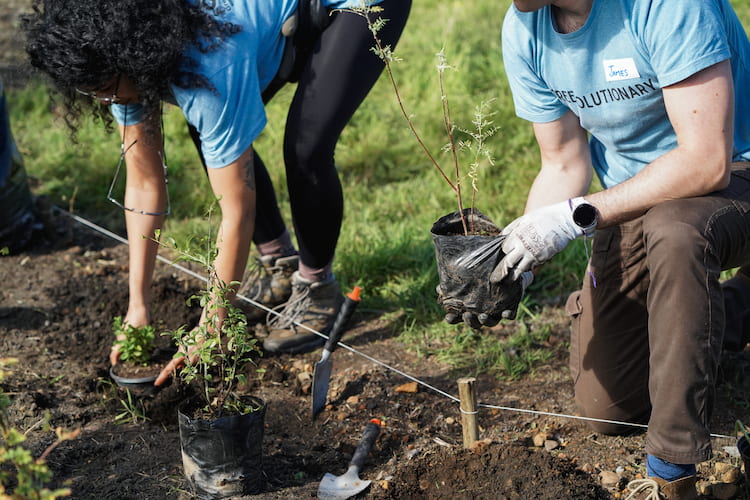
Mandela Day 2025 at Philippi Village
On Mandela Day 2025, Greenpop and WWF South Africa joined forces, making a compelling case for the potential of urban greening as a catalyst for both ecological and communal upliftment, in the form of a community planting day at Philippi Village. Greenpop’s urban greening team was joined by 60 WWF participants and 4 local community members. The event was a component of Greenpop’s greater plans for their overarching Living Landscapes urban greening project, an initiative seeking to green under-resourced and previously neglected environments in South Africa. A total of 476 plants and trees were planted, of 38 unique species, and 83m² of biodiversity garden beds were nourished with new saplings. A momentous transformation that will diversify and strengthen this urban ecosystem immensely.
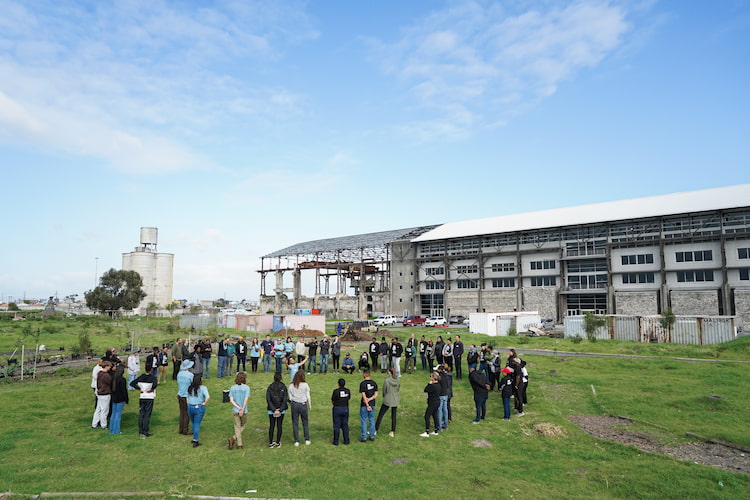
'One of the reasons I find these garden days so special is the amount of awe and joy people express when they come into the space and step out of their comfort zone for a moment. They realise all the incredible things that are happening around here and get an opportunity to give back a little and be involved. Everyone walks away with such big smiles, just realising that this is happening, change is happening, and that people are doing good all around us,' says Michaela Badenhorst, Greenpop’s Partnerships Manager.
Providing Newfound Hope: Philippi Village
Nowhere is the potential of urban greening more evident than in places like Philippi Village. Philippi's history is deeply intertwined with the destructive policies of apartheid, with the area being utilised by the apartheid government as a space through which to segregate and marginalise by way of the Group Areas Act of 1950, a policy which forcefully assigned South Africans to certain urban areas according to their racial classification. The area was designated for Black and Coloured communities.
Philippi Village is brimming with different facilities and spaces that provide the local youth with the opportunity to engage in a wide range of outdoor activities. Launched in 2015, the organisation has since built an environment in which the local community can thrive, draw inspiration and pursue their ambitions. An essential space for the locals of Philippi, an area which has historically been systemically neglected and suffered from inadequate infrastructure and resource allocation. Greenpop has been working alongside Philippi Village for roughly 18 months, and the two have worked closely to enhance the space’s biodiversity and ecological prosperity. WWF South Africa has emerged as a crucial partner, providing financial support and engaging in planting and maintenance exercises.
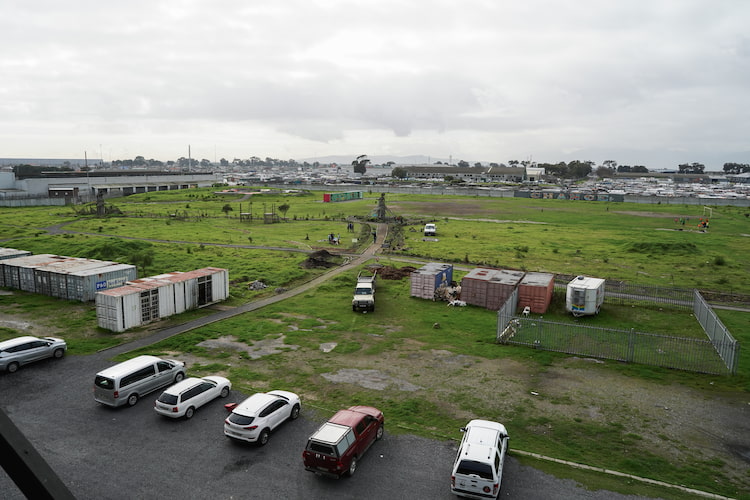
Dr Morné du Plessis, CEO of WWF SA, reflected on his experience of the day and mentioned, 'Just driving here was an eye-opener. Driving through an informal settlement with all the associated challenges and then coming into Philippi Village and just seeing a complete oasis in the middle of all these challenges.'
Urban Greening as a Tool for Equity
Decades after South Africa transitioned to a democracy in 1994, segregated communities across the country still face looming challenges and limitations due to the palpable inequality that remains systemically, geographically and economically. One such side effect of spatial segregation, that is particularly rife and acute within Cape Town, is that of unequal land access. More specifically, access to healthy, biodiverse and green land, as well as adequate infrastructure and amenities. Enter urban greening, something more than ecological beautification or environmental restoration, a tool for equity and communal upliftment.
Various stakeholders were involved in the exercise from numerous different backgrounds and dispositions. This eclectic group of individuals were driven by the same purpose and vision, executing the same tasks and working towards the same goal. A true sense of unity was channelled through the hands-on, tangible work performed by Greenpop, Philippi locals, the Philippi Village team and WWF South Africa. Esethu Mbooi, Green Guardian at Philippi Village, stated that, 'The WWF planting day was a beautiful demonstration of what it looks like when people from different backgrounds, ages and walks of life come together with a shared purpose, working side by side on common ground. It was a beautiful reminder that it really takes a village to create a village.'
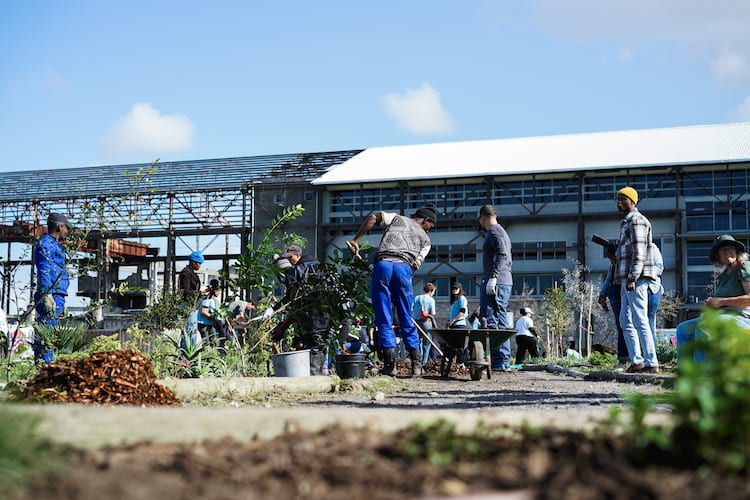
Urban greening efforts, such as the planting days conducted by Greenpop under their Living Landscapes project, go above and beyond environmental upliftment by serving as a holistic means of sustainable, communal development. Through the establishment of green spaces, community members are presented with newfound opportunities for skills development, acquiring practical experience of horticulture, landscaping, and environmental restoration. This can directly lead to job creation, improved livelihoods and economic empowerment. Beyond the tangible benefits of employment and education, urban greening transforms previously neglected areas into inspiring and healthy environments, cultivating a stronger sense of community, pride, belonging and an elevated quality of life.
'All in all, the day played out true to the name of the Living Landscapes project – in that we get this emerging property of life when we put different elements together, that turns out to be something seemingly more than the sum of its parts,' says Imraan Samuels, Greenpop’s Urban Greening Manager.
Ultimately, urban greening is more about just planting trees and shrubbery; it's about forging hope and opportunity in communities that have been compromised by marginalisation, segregation and political injustice. A greener, more equitable South Africa is within reach, and it starts with giving back to the people and ecosystems that need it most.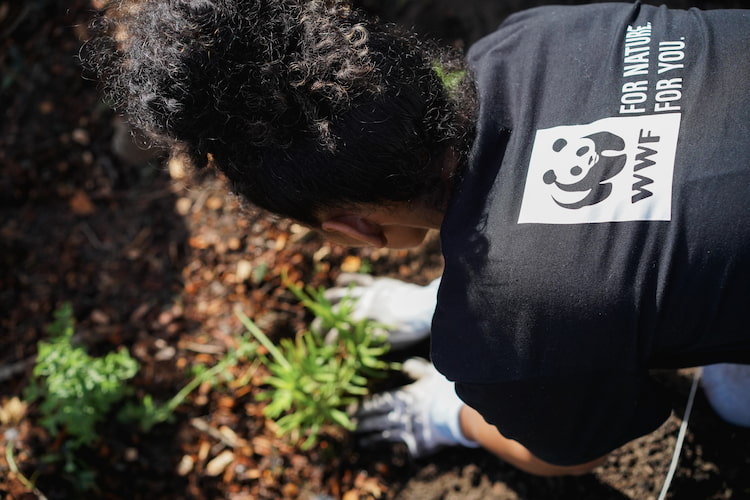
Discuss this article
Clicking links may earn us commission. . Stock images by Depositphotos.
Subscribe: Stories about wildlife, habitats and heroes
Welcome to Conservation Mag where we celebrate nature preservation through ecotourism and wildlife travel while we look for ways to preserve our heritage by supporting nature conservation. Starting conversations about the positive action people like you and I are taking to make a change.
Quick Links
Work With Us
![]()

